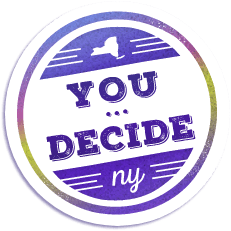This November, we are observing Veterans and Military Families Awareness Month. As we do, it’s essential to highlight an important issue that affects Veterans, their families, and especially the youth who look up to them: gambling. Veterans act as unique and respected role models within their communities, often as heroes and role models for young people. Though, for many Veterans, the challenges of adjusting to civilian life can lead to gambling as a coping mechanism. These gambling behaviors can significantly impact their families, especially youth.
Gambling’s Effect on Youth
Gambling among youth is already a rising concern, with 23% of students reporting that they gambled at least once in the past year, and the most popular time being weekends. When youth witness a Veteran family member engaging in gambling, it can normalize gambling behavior and increase youths’ own risk of participating. Youth are observant, and even unintended exposure to gambling can make it seem like an acceptable way to handle stress, especially when they see a Veteran, someone they respect deeply, engaged in the activity.
Statistics highlight the seriousness of this risk for Veterans: they are over four times more likely to gamble than non-Veterans and engage in a wider range of gambling activities. Additionally, 43.1% of Veterans experience problem gambling, compared to only 6.5% of non-Veterans.
Veterans as Role Models
Veterans often hold a revered place in the family as a source of inspiration and strength. For young people, Veterans are seen as symbols of bravery, integrity, and resilience. But when a Veteran’s behavior includes gambling, it can send a mixed message. Instead of viewing gambling as a high-risk behavior, youth may come to associate it with the Veteran’s admirable qualities, inadvertently seeing gambling as a positive or even “heroic” pursuit.
Financial and Emotional Strain on Youth
The financial strain that gambling can place on a household can impact the entire family, particularly youth. When a Veteran family member struggles with problem gambling, the resulting financial issues are not lost on young people. Even if parents try to shield children from these issues, youth are often aware when financial stress is present. They may feel anxious, uncertain, or even guilty.
Emotionally, youth in households where gambling is prevalent may experience confusion and distress. They may idolize their Veteran family members but are troubled by the negative consequences gambling brings into their lives.
Recovery as a Role Model for Youth
Recovery is the journey of healing from problems due to gambling and living a life of hope, happiness and health. When Veterans take steps toward treatment and recovery, they demonstrate to youth that it’s possible to overcome challenges without relying on harmful coping mechanisms. Through recovery, they show young people the value of facing difficulties head-on and the courage to seek help. Recovery also allows Veterans to model alternative coping mechanisms, such as engaging in hobbies, sports, or community service—activities that promote resilience and emotional well-being.
This positive shift provides youth with an example of how to handle stress in a constructive way and teaches them valuable lessons about financial responsibility, self-care, and the importance of seeking support when needed. Veterans in recovery have the opportunity to be even stronger role models, guiding youth away from risky behaviors and toward positive, life-affirming choices.
Finding Solutions and Preventing Harm
Youth Taking Action
Youth can take action by learning more about gambling related problems. They can start a conversation with a trusted adult (such as a parent, teacher, or coach), and ask questions about gambling and how it’s becoming a problem. Lastly, they can work on a project on the impacts of gambling and present the information in their class to help raise awareness.
Young Adults Making A Difference
Young Adults can make a difference by speaking out. Learning about problems due to gambling and how Veterans are at an increased risk is the first step. The next step can include raising awareness through public awareness campaigns, or leading an exciting fundraising alternative activity (i.e. a 5K race, a community scavenger hunt, or duct tape a teacher).
Parents Identifying Discussion Moments
Parents can identify discussion moments to start a conversation with their youth or young adult. These discussion moments, which can be based on troubling situations, can help educate youth and young adults about problems due to gambling, but also highlight that there is help and hope available for people struggling with problem gambling.
Community Influencers Raise Awareness
Community Influencers can help raise awareness with flyers and handouts for youth and young adults. They can weave in problem gambling with other risky behaviors for Veterans, such as Veteran alcohol or substance abuse. This helps the community see the connection of gambling with other risky behaviors and helps bring to light the importance of addressing Veterans’ struggles with problem gambling.
Seek Professional Help
If you find yourself struggling with gambling harm, or if you suspect someone you know is facing such challenges, don’t hesitate to seek help. For 24/7 support, call the NYS OASAS HOPEline at 1-877-846-7369 or text 467369. Or choose your county using our interactive map on our NYProblemGamblingHELP.org HOME PAGE to see the contact information for the Problem Gambling Resource Center (PGRC) in your region.

